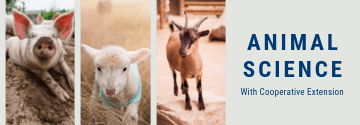|
DAIReXNET The source for reliable dairy information. |
|||||||||||
| Effective Management of Farm Employees | |||||||||||
|
Follow us on Twitter for updates and conversation on the dairy industry.
Information on upcoming webinars and everything you need to know to attend.
An archive of all of our past webinars, with recordings and PowerPoint files.
Visit the DAIReXNET home page to see other relevant resources.
Looking or another way to connect with us? Like the DAIReXNET Facebook Page! |
|||||||||||
Philip Durst and Stanley Moore |
|||||||||||
October 6th, 12:00 PM Central Time |
|||||||||||
Durst and Moore will discuss the results of phone interviews with 158 employees from 11 dairy farms, including:
|
|||||||||||
|
Feeding Fats, in Moderation, to Dairy Cows
Dairy cows need a tremendous amount of energy; a dairy cow weighing 1400 lb and producing 70 lb/day of milk with 3.6% fat and 3.3% protein needs about 33 Mcal/day of net energy for lactation (NEL). Although the units are somewhat different, this is about 26 times more energy than for a person consuming a recommended 2000 Calorie diet. Concentrates are higher in energy density than forages, but adequate dietary effective fiber is needed to maintain rumen function, so concentrates need to be limited in the diet. Thus, one of the primary purposes of feeding supplemental fat to dairy cows is to increase energy intake. Fats are higher in energy density than carbohydrates and proteins; therefore, adding fat increases the energy density of the diet.
|
|||||||||||
| Please contact Nancy McGill at nancy.chenault@uky.edu with questions and concerns. | |||||||||||


